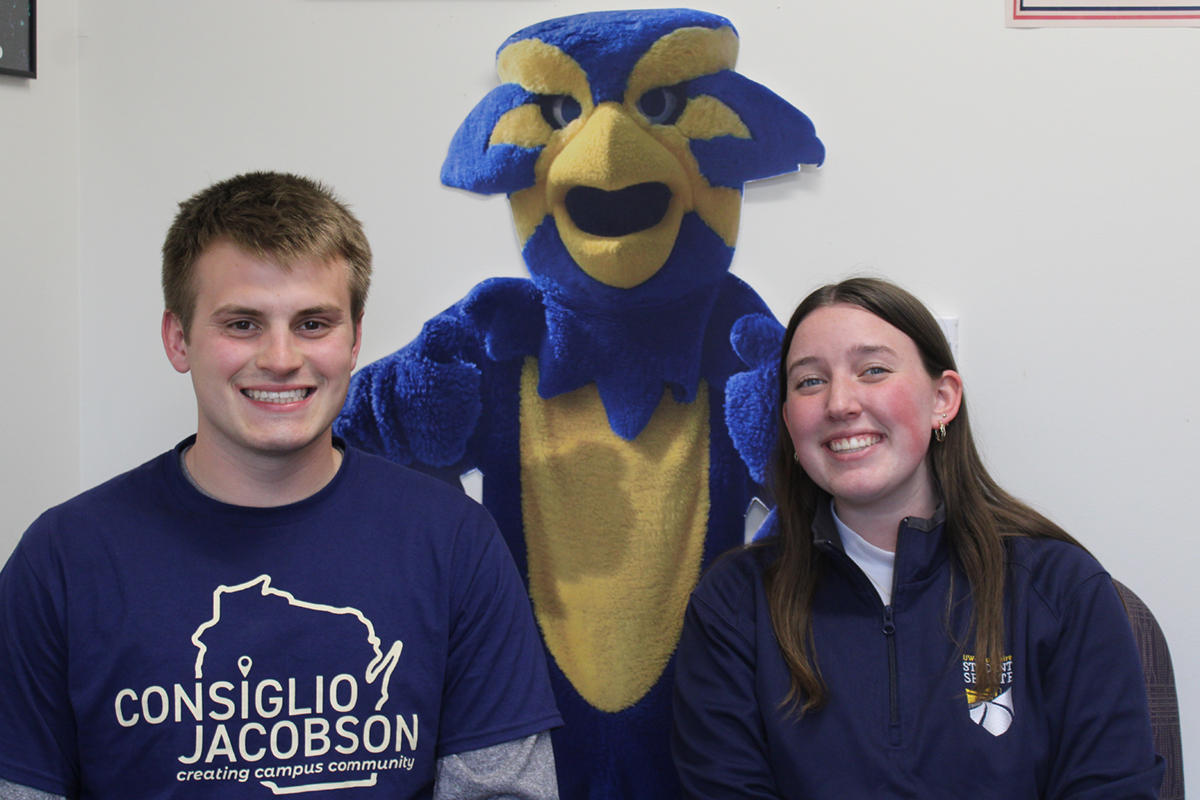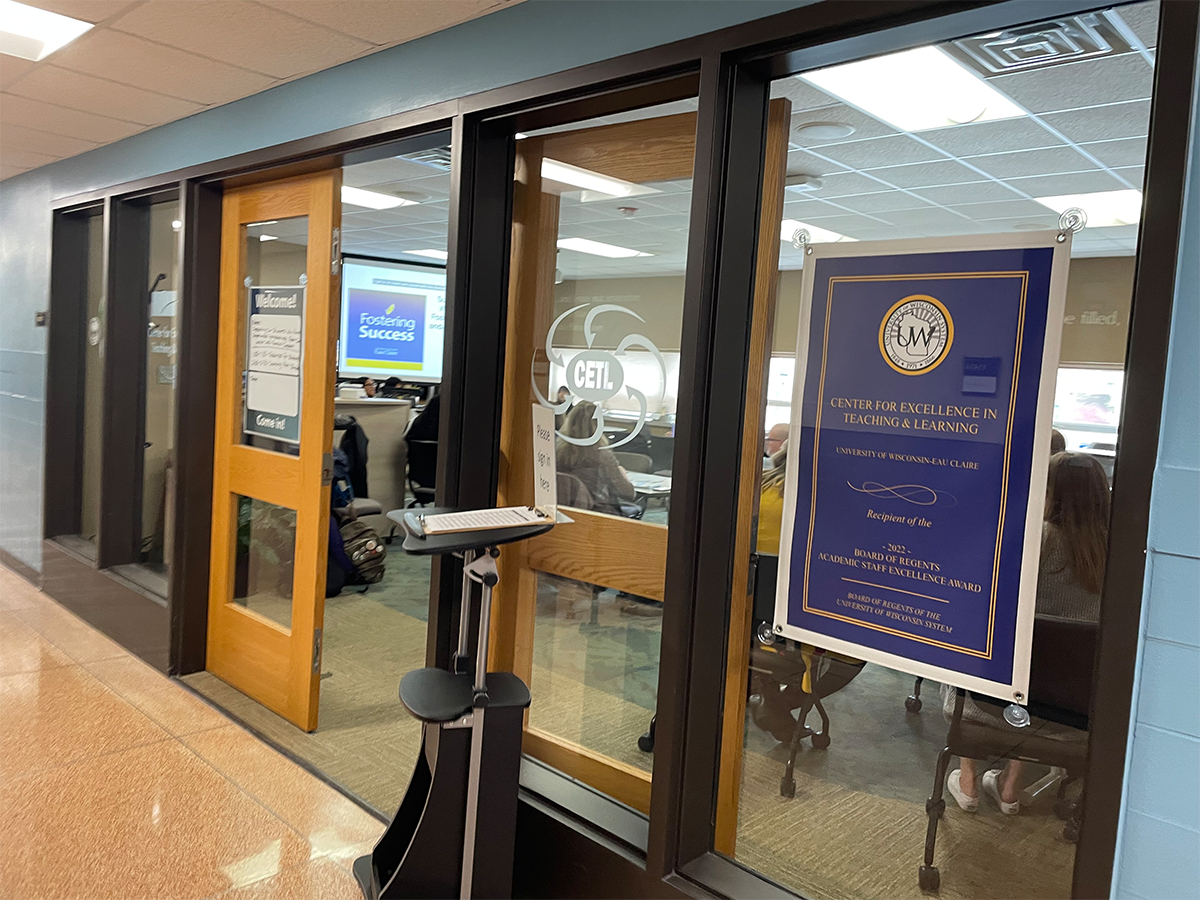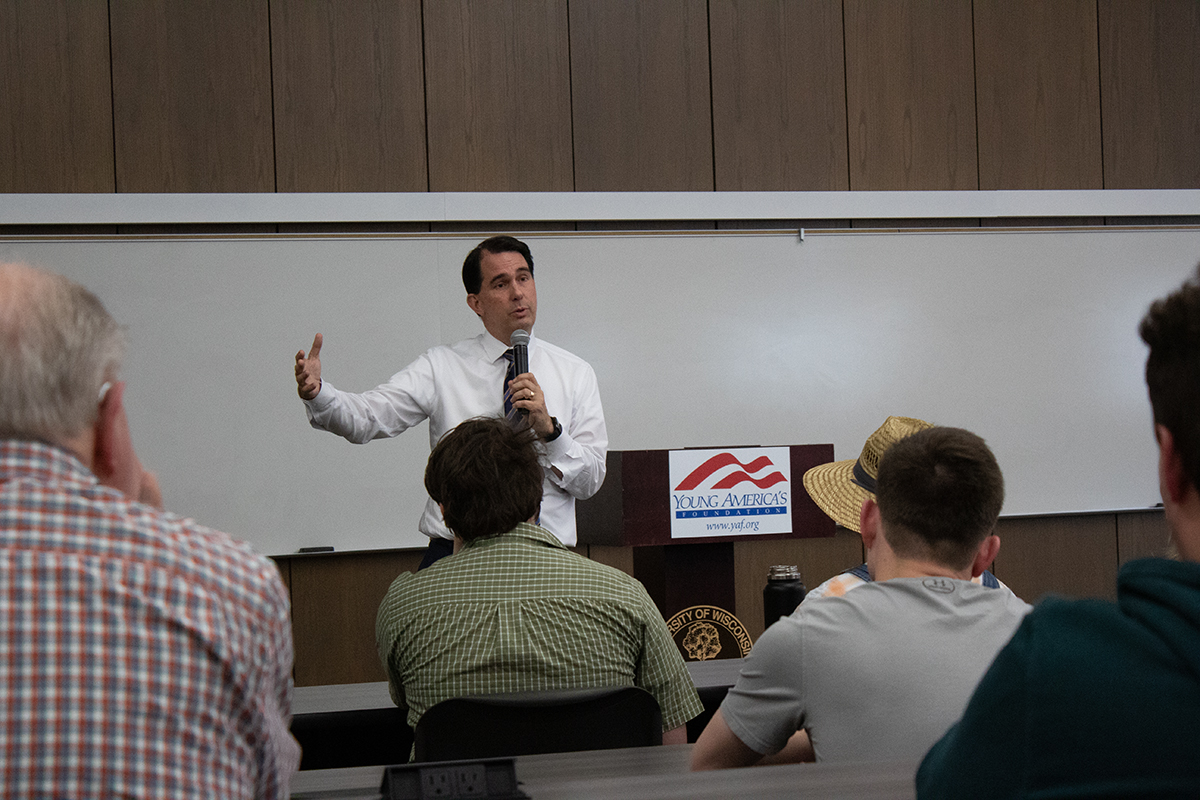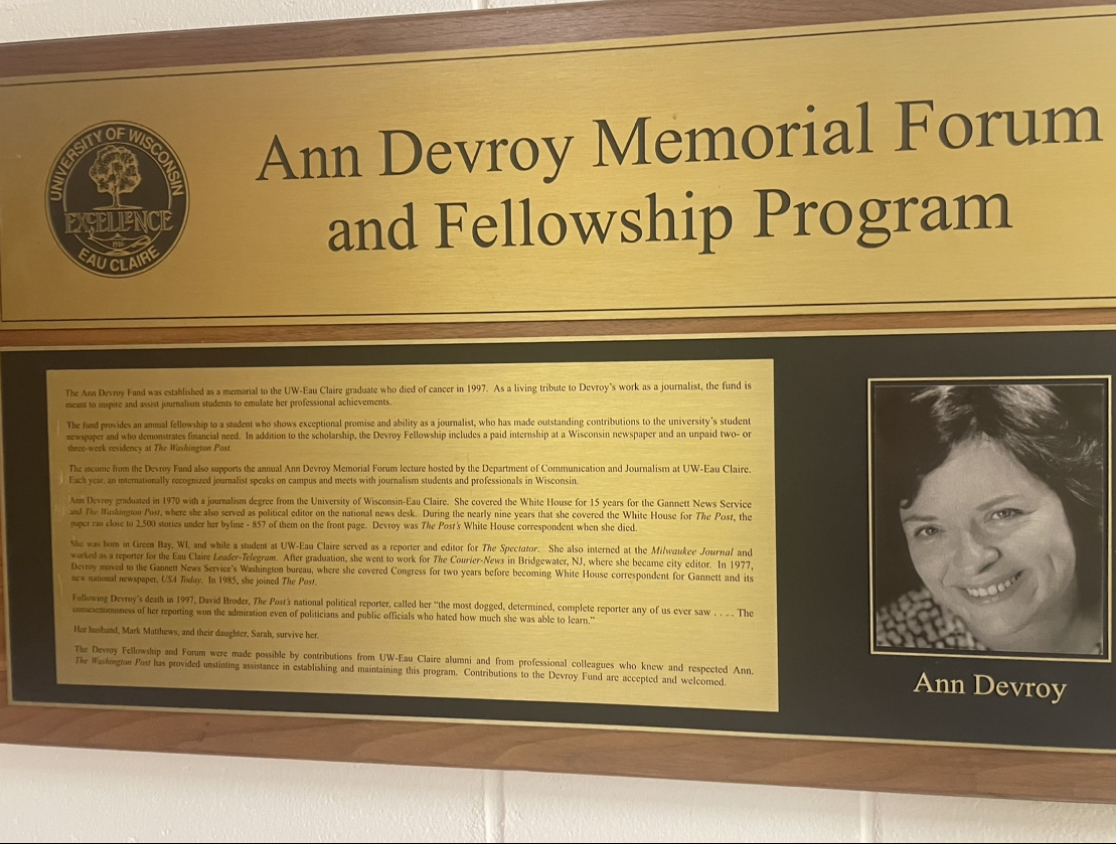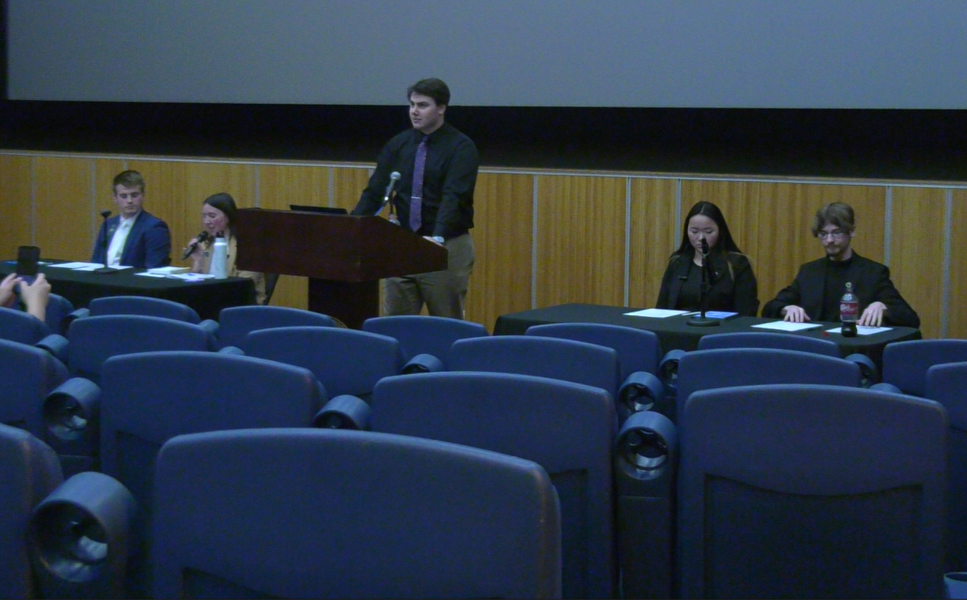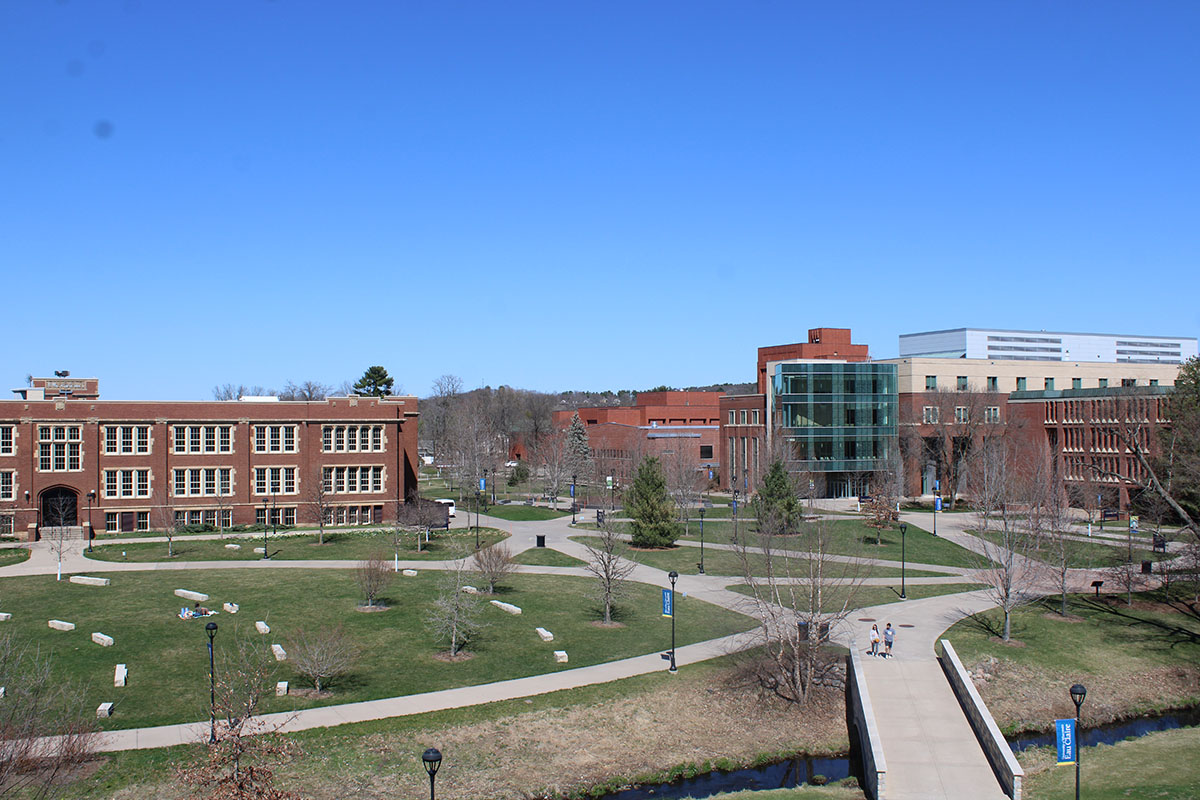Sixteen women from across the state will converge April 21 in Madison to receive the UW System Outstanding Women of Color in Education Award.
Kimberly Barrett, associate vice chancellor for student development and diversity at UW-Eau Claire, is one of those 16. According to records on the WSC Web site, Barrett is the 14th woman from Eau Claire to receive the award since 1995, when the award was first presented.
“Of course I’m honored that my peers would take the time to nominate me,” Barrett said. “I was very pleased.”
The award is sponsored by the Women’s Studies Consortium and the Office of Diversity and Development.
Helen Klebesadel, director of the WSC, said the award is presented every year at the statewide women’s studies conference. She added awardees are selected by on-campus committees at UW institutions each year, and said schools are typically granted one nomination.
“It’s a fabulous award,” Klebesadel said. Awardees can include faculty, staff, and community members, she added.
Barrett will join 15 other women this year in receiving the award. The awardees represent all 13 four-year universities and one two-year college within the System as well as UW Extension and System administration, according to the Web site.
“(Barrett) has really elevated and raised the visibility of diversity efforts on campus,” said Susan Turell, a psychology professor and coordinator of Women’s Studies at Eau Claire. Barrett not only focuses on ethnic diversity, but also on gender, class and sexual orientation diversity, Turell added.
Barrett has been involved in several diversity-related organizations in the Eau Claire area, she said. She was instrumental in the creation of the Women and Gender Equity center and the Center for Awareness of Sexual Assault, and has also facilitated on-campus diversity workshops and has worked with community groups dealing with diversity issues.
She said she has also been involved with the Wisconsin Alliance for Minority Participation, a program funded by a National Science Foundation grant that is designed to increase the number of minorities receiving degrees in science, engineering, technology and math.
“This kind of work is near and dear to my heart,” Barrett said. “Diversity and social justice work is something that I try to integrate into everything that I do.”
Barrett said she thinks the award allows people to receive important recognition and provides a model for others to follow.
“I think the award provides an opportunity to showcase the achievement of women who have historically been marginalized,” she said. “It’s really an opportunity I think to both congratulate people on things they’ve done but also encourage other people to do similar things.”
“(Barrett) is a wonderful colleague,” Turell said.
Typically, 15 to 17 awards are given away at each annual ceremony, though there have been as many as 43 awards given away, as was the case in 1998. That year, three women from Eau Claire received awards, according to the WSC Web site.
Klabesadel said the WSC has since decided to limit the number of awards given away, adding the inclusion of non-System schools made the event more difficult to coordinate.
English professor Tess Onwueme was the first woman from Eau Claire to receive the award, according to the site. Barbara Blackdeer-Mackenzie, who received the award last year, was the most recent recipient from Eau Claire.
Klebesadel said the award ceremony allows people to recognize work that often goes unrecognized.
“There are so many people working so hard on issues that are never really given enough visibility,” she said. “What’s so fabulous about this is we get to acknowledge the fruit of their hard work and we get to thank them.”

